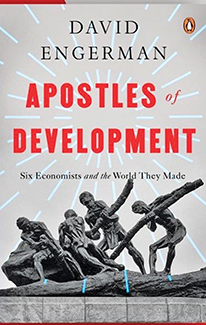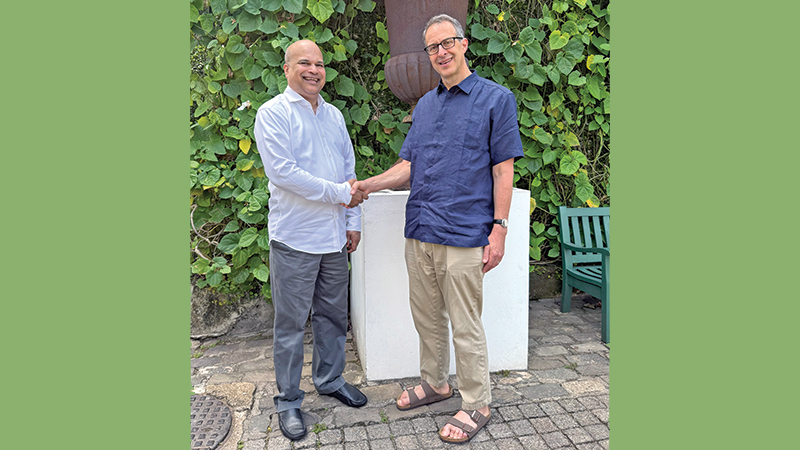Dr. Jayawardena’s inclusion in this distinguished group stands as a testament to Sri Lanka’s significant contributions to global development discourse. He was the founding Director of the United Nations-affiliated World Institute for Development Economics Research (WIDER), a key figure in the landmark North-South Commission, as well as in numerous international and Commonwealth development forums
‘The Apostles of Development – Six Economists and the World They Made,’ by Yale historian Dr. David C. Engerman casts a spotlight on the late Dr. Lal Jayawardena of Sri Lanka, recognising him as one of six pioneering South Asian economists who helped shape the field of development economics in the decades following World War II.
 Titled Apostles of Development and the World They Made, the book chronicles the global effort to combat poverty after 1945 and the rise of a new figure on the international stage: the Third World development expert. At the heart of this account are six economists—Lal Jayawardena of Sri Lanka; Amartya Sen, Manmohan Singh, and Jagdish Bhagwati of India; Mahbub ul Haq of Pakistan; and Rehman Sobhan of Bangladesh—who studied together at Cambridge University in the early 1950s and went on to become leading voices in global development thought and policy.
Titled Apostles of Development and the World They Made, the book chronicles the global effort to combat poverty after 1945 and the rise of a new figure on the international stage: the Third World development expert. At the heart of this account are six economists—Lal Jayawardena of Sri Lanka; Amartya Sen, Manmohan Singh, and Jagdish Bhagwati of India; Mahbub ul Haq of Pakistan; and Rehman Sobhan of Bangladesh—who studied together at Cambridge University in the early 1950s and went on to become leading voices in global development thought and policy.
The book’s title alludes to the “Cambridge Apostles,” a renowned intellectual society known for its exclusivity and spirited debate—of which Jayawardena was among the first South Asian members. By drawing this connection, Engerman places the group within a tradition of rigorous inquiry and enduring influence. Despite their national differences, the six economists remained close colleagues and collaborators throughout their careers, united by a shared commitment to improving conditions in the developing world.
Born under colonial rule and educated in elite Western institutions, these economists brought both critical insight and practical experience to their work. Their approaches were shaped by hands-on engagement with urgent developmental challenges, rather than by adherence to fixed ideological frameworks. Engerman’s book challenges the prevailing notion of development as an instrument of Western dominance, arguing instead that meaningful progress arises from context-specific, locally informed solutions.
Dr. Jayawardena’s inclusion in this distinguished group stands as a testament to Sri Lanka’s significant contributions to global development discourse. He was the founding Director of the United Nations-affiliated World Institute for Development Economics Research (WIDER), a key figure in the landmark North-South Commission, as well as in numerous international and Commonwealth development forums.
In Sri Lanka, he held several senior positions, including Secretary to the Ministry of Finance and Planning, Economic Advisor to the President, Ambassador to the European Union, Belgium, and the Netherlands, and High Commissioner to the United Kingdom. He was the son of Deshamanya N.U. Jayawardena, Sri Lanka’s first Central Bank Governor of Sri Lankan origin.







